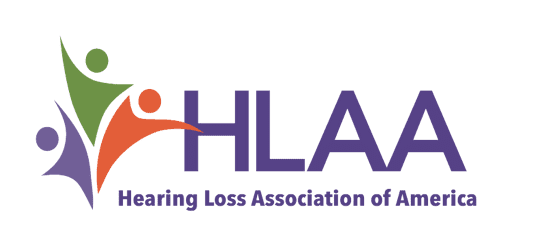The following information was posted on the Hearing Loss Association of America’s (HLAA) website.
The coronavirus pandemic is upending everyone’s daily life. Schools have been closed, people are working from home, Broadway and local theaters have shut down, and movie theaters, bars, and gyms are closing one-by-one, state-by-state. Many people are staying at home, self-isolating, or, in some cases, in quarantine.
If you are working from home or attending school remotely via online coursework, emergency or no emergency, you still have a right to meetings and online coursework that is accessible. But it’s not simply a matter of exercising your civil rights, it is important to do the best work you can. To do that, you must be able to communicate effectively with your team, whether at work or school.
In April, 2015, the US Department of Justice (DOJ) reached a settlement with edX Inc, a provider of Massive Open Online Courses (MOOC), to make its website, online platform, and mobile applications accessible under the Americans with Disabilities Act (ADA). In their press release announcing this settlement, DOJ said, in part:
“Critical portions of education are moving online, in tandem with the rest of our social experience,” said US Attorney Ortiz. “This new, educational online world readily can, and should be, built from the outset in a way that does not discriminate against those with disabilities.”
Title III of the ADA prohibits discrimination on the basis of disability by public accommodations in the full and equal enjoyment of the goods, services, facilities, privileges, advantages, and accommodations of places of public accommodations. Title III of the ADA also requires public accommodations to take necessary steps to ensure individuals with disabilities are not excluded, denied services, segregated, or otherwise treated differently because of the absence of auxiliary aids and services, such as accurate captioning of audible materials and labeling of visual materials. The Justice Department has long considered Title III and its implementing regulation to apply to the online services and communications of public accommodations.
The US Department of Education released a webinar and a Fact Sheet for Protecting Students’ Civil Rights During COVID-19 Response
The ADA is intended to level the playing field for all people with disabilities at work, in public places, for telecommunications access, and when interacting with state or local governments. Just as Title III prohibits disability discrimination online or in person, so does Title I, which covers employment provisions under the ADA.
The US Equal Employment Opportunity Commission (EEOC) enforces workplace anti-discrimination laws including the Americans with Disabilities Act (ADA) and the Rehabilitation Act, including the requirement for reasonable accommodation and rules about medical examinations and inquiries. In a technical assistance document issued March 18, 2020, “Pandemic Preparedness in the Workplace and the Americans with Disabilities Act,” the EEOC notes,
The ADA and Rehabilitation Act rules continue to apply, but they do not interfere with or prevent employers from following the guidelines and suggestions made by the CDC or state/local public health authorities about steps employers should take regarding COVID-19. Employers should remember that guidance from public health authorities is likely to change as the COVID-19 pandemic evolves. Therefore, employers should continue to follow the most current information on maintaining workplace safety.
For more information, see the Pandemic Preparedness in the Workplace and the Americans with Disabilities Act page.
In short, your rights under the ADA do not disappear during an emergency. But the HLAA advises, whether you are at work or school, to reach out first to make sure your access needs are known. Talk to your college disability coordinator or your supervisor at work to ensure access as soon as you can. They cannot know what you need unless you tell them.
There are many resources to help you navigate our upended world in this time of coronavirus. And now we are seeing more information specifically for people with hearing loss. One particularly helpful resource is the Hearing Tracker. They have posted information about how to get captioning online, as well as how to communication via video conferencing even if you don’t need captioning, but do need to make the most of the audio connection.
Source: HLAA



